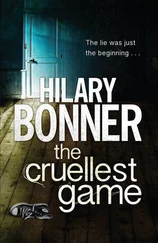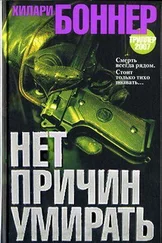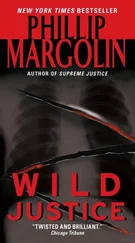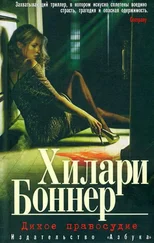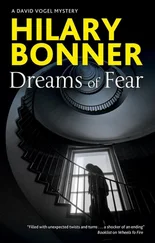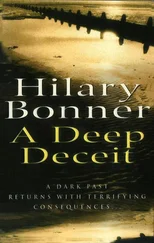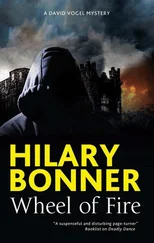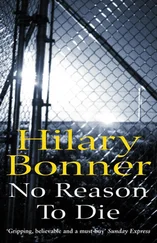She told them about the Human Rights Act and how it would become law in October, and the implications it would have on cases like O’Donnell’s; how even though the double-jeopardy exemption article in the European Convention was not being adopted, British courts would still be required to take it into consideration. ‘The right barrister could make hay with that,’ she said, unsure whether she had used the farming analogy deliberately or not.
She could see she had excited the family’s interest, won them round a little. She was good at winning people round. That was, after all, what she had done for a living almost all her adult life.
‘Would it really be possible, after all this time?’ asked Rob.
She nodded and was about to speak when Bill Phillips effectively killed the moment.
‘No, it won’t be possible, Rob,’ he said, his previously quavering voice quite firm. ‘Have you any idea how much a court case like that would cost? If we lost, the costs would cripple us. You know better than anyone the financial losses we have suffered over the last few years. All this family has left is this farm — and the boy, of course.’ He glanced fondly towards his grandson. ‘I want him to have Five Tors and a chance to build it up again. The rest is history.’
Again Joanna was about to speak, to explain what it might be possible for the Comet to do for them, when she was prevented from doing so by Les Phillips.
‘No, grandad, it’s not history,’ he cried out suddenly. ‘All my life I’ve been haunted by what happened to Angela. I never even knew her and it’s as if she’s by my side day in and day out. Sometimes I don’t even want the farm. The memories it carries haunt me. Let’s take this bastard to court and maybe we can finally bury Angela at the same time as we bury O’Donnell.’
The rest of family stared at him in shocked silence.
Les flushed and spoke again at once, suddenly realising, it seemed, what he had said and the way it must have sounded. ‘Uh, I’m sorry, I didn’t mean it like that...’ he began.
His grandfather touched his hand with his. ‘We know, boy, we know,’ he said gently.
Joanna spoke then. Very quietly, very deliberately. ‘The Comet may be able to help,’ she said. ‘I may be able to persuade the editor to pay for the case. It won’t be easy... I’ll have to deliver. You’ll have to help me...’
‘Yes, and I can imagine only too well the kind of help you want.’ Bill Phillips still didn’t sound very friendly, although Joanna thought he was perhaps more resigned to the way things were than anything else.
Rob shifted in his chair as if he was in physical discomfort and yet again glanced at his father anxiously. Joanna knew that after the trial and the Comet ’s publication of O’Donnell’s side of the story the older man had never talked to the press again. And he had always been outraged when money had been offered, making it quite clear that the very thought of making money out of his daughter’s torment was repugnant to him. That was the way the whole family had always seen it.
Would that be the way they would see it now, too, she wondered. It was different. There was something concrete on offer. Something perhaps that could be done in the name of justice. Or was that as much of a joke to him as it all too often was for her? She waited, as did the rest of the family, for Bill to speak. He might be old before his time and frail, but he was still the acknowledged head of this family, there was no doubt about that. They were a traditional lot the Phillipses.
‘I’ll think about it,’ Bill told her eventually. ‘The family needs to talk. Alone,’ he added pointedly.
She took the hint and left.
Two days later Rob Phillips called her on her mobile. ‘OK, we’ll give it a go,’ he said. ‘But I tell you now, if this goes wrong it’ll kill my father.’
‘It won’t go wrong, Rob, not again, I won’t let it,’ she responded instantly.
She began to put the plan into operation then. First she had to convince Paul, who needed quite a lot of persuading to allow the paper to become involved. He had no doubts about the newsworthiness of a reincarnation of the Phillips case, but he needed to be certain that the case would be won. No newspaper ever wanted to back a losing cause. He also wanted to be sure of the family’s commitment and of Joanna’s control over them. ‘If we go ahead with this I don’t want it known that we are funding the prosecution,’ he said. ‘That would put a question mark over the integrity of our coverage of the case and also, if I know your average jury, probably prejudice the likelihood of a successful prosecution. They all love to hate the tabloid press, which you’re every bit as aware of as I am.’
Jo gave him more assurances than she had any right to, as journalists almost always do when trying to sell a dangerous idea to their editors. As a rule the fact that she was his wife made no difference at all to any editorial decisions he might make concerning her. But she did wonder later if he had been influenced by his relationship with her on this one occasion. He knew how much it had always affected her.
‘OK,’ he said eventually. ‘I’ll go for it, but I want a proper legal assessment first. Get yourself an appointment with Nigel Nuffield.’
Joanna’s heart soared. She had never met Nuffield but she knew his reputation, based on a near hundred per cent success record. He was a top bleeding-hearts barrister. He saw himself as a leading human rights campaigner — at least that was the image he liked to cultivate. Joanna doubted his sincerity, as she did that of virtually all the barristers she had ever encountered, but Nuffield was high profile, a great performer and clever. He was also publicity-mad. Defence was his usual game, justice for the wrongly convicted. Attempting to get justice for a victim in such unusual circumstances would be a new departure for him. But then, it was all going to be new. That was the whole point.
Jo didn’t think the man would be able to resist.
Nuffield saw her the very next day. Joanna wasn’t surprised. Any case a paper like the Comet was behind was likely to excite his interest and this one more than most.
It was with considerable satisfaction that she watched his reaction to her story, as she sat in an armchair — several inches lower than Nuffield’s own chair, which she did not doubt for one moment was a deliberate arrangement — in the famous barrister’s Lincoln’s Inn chambers. Gilt-framed English landscapes — Jo was almost sure one was an original Constable — hung from oak-panelled walls lined with unmistakably expensive antique furniture. Whether or not his concern for human rights was genuine, Nigel Nuffield certainly always made sure he got his pound of flesh.
He was tall, handsome and elegant with abundant white hair — the recipient of regular silver rinses, Jo suspected — swept back from a learned forehead and gold-rimmed spectacles perched on an imposing nose. He oozed Old Etonian charm and self-assurance. His personal vanity was legend. Nuffield was special and he knew it. Jo didn’t think she liked him much, but she didn’t care. There surely could not be a better man for the job. Approaching sixty now, Nigel Nuffield had been at the summit of his profession for more than twenty years.
‘It would certainly be a ground-breaking case,’ he remarked languidly, unknowingly echoing Fielding’s earlier comment. ‘Of course, the rights of victims also deserve to be fought for. And I quite agree, if we make sure we go for committal after 2 October there will be a whole new slant to the proceedings. I think we could win. I really do. Tell Paul that’s my considered opinion.’
So Joanna high-tailed it straight back to Canary Wharf, secured the final nod from Paul, and produced a powerful story focusing on the Phillipses’ intention to take out a private kidnap and rape prosecution against the man they believed had killed their Angela. Whatever her husband’s reasons for allowing her to go ahead, he could not be anything but pleased by the result, in the first instance at any rate. Joanna’s story was highly emotive stuff. And it was of course the Comet ’s splash the next day.
Читать дальше

